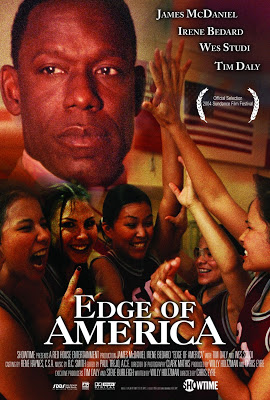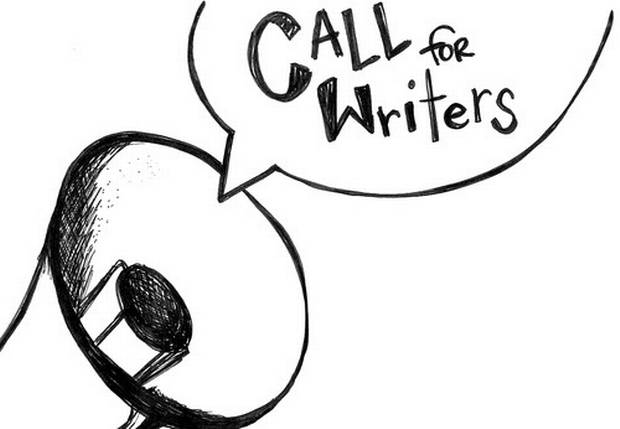 |
| Movie poster for Edge of America |
This is a guest post by Amanda Morris.
The opening images of Showtime’s movie, Edge of America, directed by Chris Ayre (Cheyenne/Arapaho), and inspired by a true story, are of a journey. A car drives through a peopleless desert landscape on an open and carless road. The driver, Kenny Williams (James McDaniel), is the new English teacher for the Three Nations Reservation in New Mexico. Our first view of the reservation is through his eyes as he stops at the edge of a pond and consults his map as he tries to find his way. But the first spoken words we hear are the Navajo language as two tribal women dicker over a price at a roadside stand. This outsider/insider construct continues throughout the movie as Kenny navigates and learns reservation life and culture through his female colleagues and students and especially his players once he agrees to coach the girls’ basketball team.
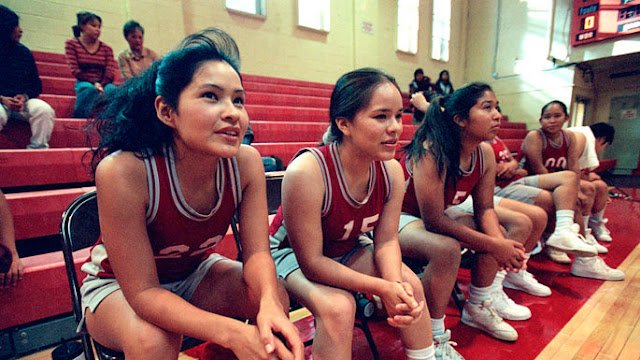 |
| Movie still of the Lady Warriors on the basketball court |
Based on the opening scenes, the viewer might assume that this story is about Kenny, but it is not. This movie ultimately focuses on community, defining one’s own identity, and the grounding strength of women. Cherokee scholar Jace Weaver created the term “communitism” by combining “community” and “activism” in his book, That the People May Live: Native American Literatures and Native American Community. The concept works well to describe what happens in this movie. Weaver writes, “Native peoples find their individual identities in the collectivity of community” (160). Edge of America is also a good example of representational sovereignty, in which “the Native is self-defining” instead of being colonialist minstrels for the dominant culture (163). The girls that Kenny recruits to play as Lady Warriors certainly face identity challenges in academic terms: None of them performs well academically and so were not allowed to join the basketball team, despite being the best players. As a result, the team is filled with lesser-skilled girls who flounder and have an impressive losing streak. School radio DJ Dwayne (Cody Lightning, Plains Cree), frequently reminds his listeners that the Lady Warriors are “all losers, all the time.”
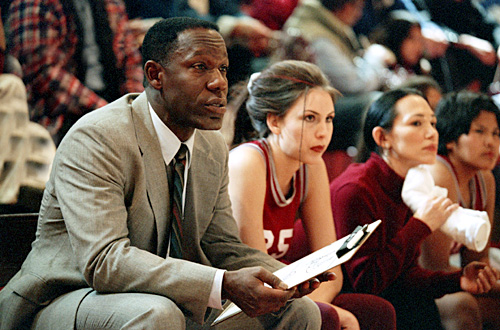 |
| James McDaniel, Delanna Studi, and Irene Bedard in Edge of America |
Being defined as losers is something that the girls struggle to reverse as the movie progresses. Kenny guides them through physically hard practices and mentally hard readjustments of their personal expectations, and the Lady Warriors begin to coalesce into a self-defined community of proud women basketball players, but the road toward this goal is not straight.
This film privileges the indigenous perspective from the start and specifically shows strong women guiding the action either explicitly or implicitly. From Mother Tsosie (Geraldine Keams, Navajo) telling Kenny, “Drive” when he gives her a ride to the res in the movie’s second scene, to Annie Shorty (Irene Bedard, Inupiat/French Canadian/Cree) saving Kenny by giving him a ride to school the first day when his car breaks down, to Carla McKinney (Delanna Studi, Cherokee) teaching Kenny a lesson about humor and stories in his classroom. Each woman that Kenny encounters has something to teach. Annie challenges Kenny’s coaching strategy when he runs the girls hard during basketball practice and again near the end of the film. After the Lady Warriors have made it to the state finals, Annie and Kenny face off in a hotel room over his anger and his inability to accept imperfection in his players. Annie tells him that the girls have done everything he’s asked, from practicing hard and getting good grades, to winning. Kenny asks, “Then you tell me why I’m pissed off.” Annie retorts gently, “Because you’re a black man in America.” Kenny snidely agrees and Annie yells, “Well then get over it. You’re talkin’ to Indian people here. Get over it, get on with it, or get the hell out!”
 |
| The Lady Warriors look on as their coach sings the National Anthem |
Many scenes involve such confrontations of assumptions, whether subtle or overt. In one softer scene, “Baby” Tsosie (Trini King, Navajo) experiences a traditional healing ceremony by her mother before a practice after she loses her ability to sink a basket, which Kenny disrupts and dismisses, saying, “Look, anybody who’s been witched, stand over there; the rest of us have basketball practice.” The community of women in whose presence this ceremony takes place is broken, and when Mother Tsosie calls African American Kenny a “white man” in Navajo and leaves, Annie asks Kenny, “Are you out of your mind? Insulting an elder like that?”
Kenny may be the English teacher and girls’ basketball coach, but he has a lot to learn about tradition, community, ceremony, and the ideas that are important to Three Nations peoples. In this respect, Kenny is the viewer’s guide, helping us to understand, even superficially, that indigenous peoples still exist and have ideas and practices that may sound and feel unfamiliar–but that resonate with truth. Eventually, a fellow teacher, Cuch (Wes Studi, Cherokee), takes him out into the desert for a talk.
Cuch offers Kenny a new perspective
Judgments and assumptions frequently threaten to subvert or ruin relationships and weaken the strength of community as each scene builds to the final game, but strong women are often the reason those relationships and community sense don’t fall apart in this film. Kenny learns to adapt his colonial assumptions and expectations to the needs of his Lady Warriors and discovers his own identity in the process.
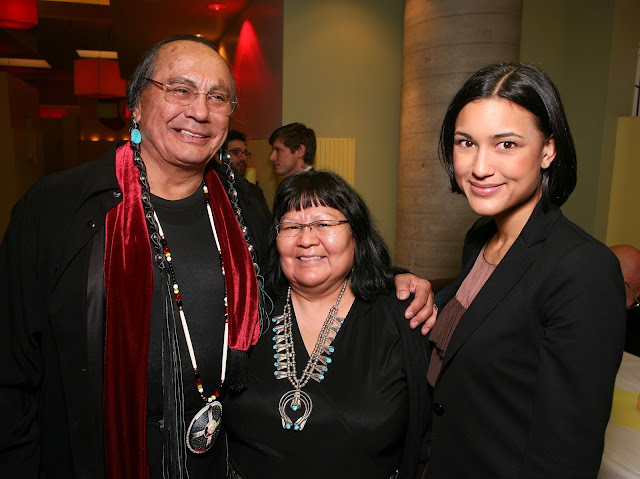 |
| The cast of Edge of America |
In the skillful hands of director Chris Ayre, Edge of America presents the idea of indigenous peoples as communities with dignity, humor, intelligence, and skill, which is in direct opposition to the typical Hollywood “Indian.” Truly, this film is a refreshing change from that norm and a more realistic presentation of the realities, challenges, and joys of modern reservation life. Viewers likewise learn to think in new ways about American Indians today, thanks to the vivid storytelling and representations of one corner of indigenous experience in Edge of America.
Watch the trailer here.
Amanda Morris, Ph.D. is an assistant professor of multiethnic rhetorics at Kutztown University in Pennsylvania, and when she’s not writing or wrangling students, she loves shark fishing, gardening, and cooking with her man.
